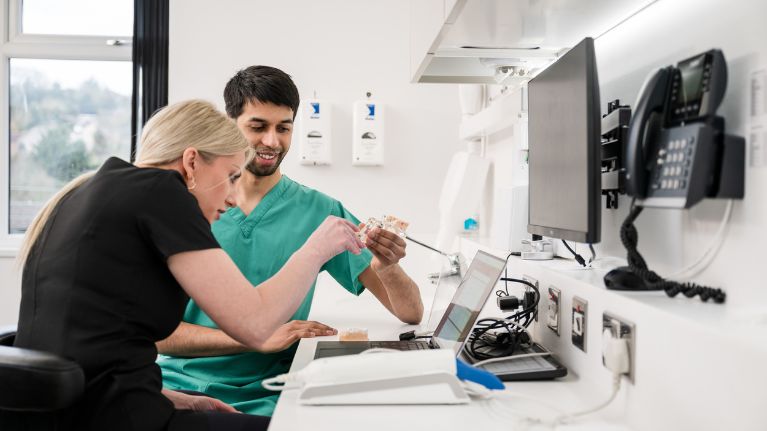Guidance for Mentor and Mentees

Mentor and mentee share the responsibility to ensure that the mentor has the suitable level of training and experience needed to carry out their role. Download the full CGDent/ADI guidelines here - Mentoring in Implant Dentistry: Good practice guidelines
Access the register
Mentor
Entrusted to a position of responsibility, a mentor should be able to guide the mentee confidently and competently. The mentor must ensure that they understand this role by having appropriate training as a mentor, maintaining up-to-date knowledge and keeping abreast of their own training.
To join the ADI Register of Mentors, in addition to being currently on the General Dental Council’s register as a dentist, a mentor is expected to have:
- A postgraduate degree or qualification in implant dentistry, or documentary evidence of completion of a structured implant training course (minimum of 70 hours in total of verifiable contact learning and meeting, as specified by Training Standards in Implant Dentistry), or demonstrably equivalent training and experience
- Placed and/or restored at least 250 implants in a variety of clinical situations, depending on which aspects of care are being mentored. This figure has been derived from a consensus of experts, however we acknowledge that suitability can also be demonstrated from a lower number of cases with appropriate insight and reflection.
- Evidence of at least five years’ experience in the specific prosthetic or surgical technique that the mentee is being trained in. Ideally, this should be in the form of a portfolio detailing the mentor’s implant training, courses attended and clinical experience
- Successfully completed an accredited medical education or mentoring course (a generic mentoring course or previous formal teaching post will also be acceptable).
- The mentor should furnish the mentee with evidence of the above requirements before embarking upon the mentoring relationship
Mentee
The mentee should be an individual who has a desire to learn and develop their clinical skills. They should be receptive to feedback and guidance, and able to critically reflect on their performance.
The mentee should currently be on the General Dental Council’s register as a dentist and have:
- A good level of general dental knowledge to the standard of MCGDent, MJDF, MFDS, or at the Capable Practitioner level of the CGDent Career Pathway augmented by further underpinning knowledge, as outlined in Training Standards in Implant Dentistry
- At least two years post-BDS clinical experience prior to commencing implant training
- Completed or enrolled on a structured postgraduate course in implant dentistry. Alternatively, the mentee should have completed or be currently undertaking a structured course in implant dentistry as part of their specialist training
- A willingness to undergo a process of mentoring with an appropriately qualified mentor.
The mentee must ensure that other dental team members who are involved in the delivery of implant dentistry with themselves, such as dental nurses, dental technicians, dental hygienists and dental therapists, have the skills and knowledge needed to undertake their roles (as outlined in Training Standards in Implant Dentistry). Mentoring will also be a relevant part of developing their ability to deliver care, and it is expected that all team members will undergo mentoring appropriate to their roles.
The aim of mentoring is not to focus purely on the advancement of the mentee’s clinical ability, but to also improve their skills in leadership, management, teamwork and professionalism. Acquiring these skills will consolidate the mentee into a competent clinician, providing improved patient outcomes and care.